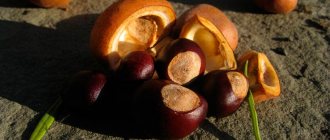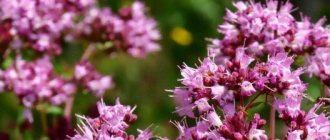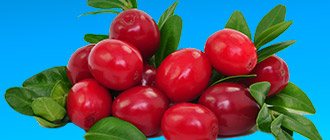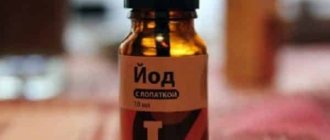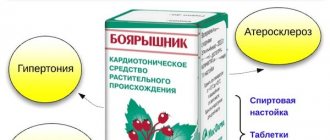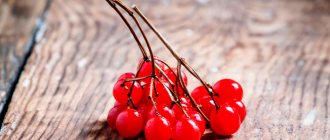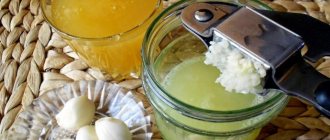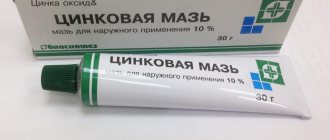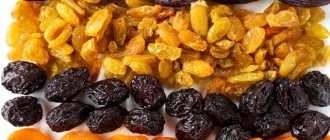10.10.2017
Last modified: July 7, 2021 at 09:13 pm
Hypertension, or scientifically arterial hypertension, is a common cardiovascular disorder in the modern world that occurs at any age. There are a lot of drugs and remedies that help hypertensive patients fight the unpleasant symptoms of the disease, and traditional medicine recipes occupy a special place among them. Some of them involve the use of sunflower seeds, an accessible and inexpensive product known for its healing properties. How do sunflower seeds work against pressure, and what should you remember when using such a medicine?
The benefits of seeds for the body
Sunflower seeds, leaves and flowers contain many vitamins and microelements beneficial to the body, which improve health and fight various diseases. These include the following substances:
- vitamin E is a strong plant antioxidant that has the ability to remove free radicals from the body and protect cells from aging;
- vitamins B3, B6, B12 – normalize the functioning of the nervous system and sleep processes, strengthen vascular walls, improve skin condition;
- nicotinic acid – dilates blood vessels, activates blood circulation and lowers the level of “bad” cholesterol in the blood”;
- magnesium – reduces blood pressure, regulates the functioning of the central nervous system, tones muscles and blood vessels;
- selenium – prevents the growth of pathological cells and the development of cancer;
- potassium – necessary for the normal functioning of the heart and blood vessels.
In addition to the above vitamins and microelements, the seeds contain protein, fat and amino acids, making this product useful for liver, kidney, and skin diseases, prevents the aging of the body, and improves the condition of the skin, nails and hair.
For cardiovascular diseases, including arterial hypertension, this product gently reduces blood pressure, eliminates unpleasant symptoms of disorders, and prevents the development of hypertensive crises and strokes.
If you have problems with night sleep, sunflower seeds will also provide the body with considerable benefits - to combat insomnia, it is recommended to regularly crack the seeds in the evenings (1-2 handfuls are enough). Magnesium and other beneficial substances will bring the functioning of the nervous system back to normal, and the process of husking, or peeling the kernels from the husk, has a sedative effect, making it much easier to fall asleep.
Advice: the beneficial substances contained in sunflower seeds remain in them for a long time, since the husk serves as protection for the kernels - for this reason, when storing seeds for the winter, it is better not to peel them.
Sunflower seeds and blood pressure
Every lover of this product who has ever experienced attacks of hypertension or hypotension has wondered whether the seeds can increase or decrease blood pressure. Sunflower seeds are a very high-calorie product rich in fatty oils, but they also contain many beneficial substances.
The effect of seeds on blood pressure depends, first of all, on the form in which they are consumed:
- Fresh or dried seeds contain a large amount of antioxidants (vitamins E, B, P), amino acids (arginine), ascorbic, folic, pantothenic acids, large amounts of calcium, magnesium, zinc and other minerals. Eating this dish has a positive effect on the cardiovascular system. Nutrients strengthen the walls of blood vessels and make them more elastic. Magnesium and calcium affect the heart, stabilize its functioning and reduce the risk of disease.
- Sunflower grains fried in oil lose their beneficial properties, but, on the contrary, gain calories. Excess fat and sodium puts additional stress on the heart muscle and causes swelling. It is for this reason that roasted seeds increase blood pressure.
It is best to buy seeds at the market, in bulk and not roasted. They are often sold out of regular white bags. And you should fry them at home, on your own, ideally without any additives or oil.
Contraindications and precautions
Despite the fact that the use of sunflower seeds for hypertension and other diseases, according to reviews, is highly effective, you should not abuse them. There are no direct contraindications to the use of the product, but there are several nuances that should be taken into account when treating hypertension and other diseases.
Important information: What to drink if you have high blood pressure: tea or coffee
Sunflower kernels are very high in calories, as they contain easily digestible fats, which threaten those who are addicted to them with weight gain. This fact is recommended to be taken into account by everyone who suffers from excessive obesity and diseases that can cause obesity - for example, hormonal disorders and diabetes. In case of such disorders, it is better to choose pumpkin seeds rather than sunflower seeds - they will not only lower blood pressure, but also normalize blood sugar, increase immunity and get rid of parasites.
Frequent cracking of the seeds injures tooth enamel and destroys it, which can cause the development of caries, and the kernels have a bad effect on the vocal cords, so they are not recommended for those who are worried about their voice (professional singers, announcers, etc.). Those who suffer from low blood pressure and gastrointestinal diseases, including ulcers, gastritis, colitis and enterocolitis, should also treat seeds with caution.
Advice: pregnancy is not a contraindication for consuming sunflower seeds, but when breastfeeding, they can cause digestive problems in the baby, so you need to monitor the child’s reaction.
Contraindications
In some cases, seeds need to be excluded from the diet. Contraindications to their use are as follows:
- Allergy. Individual intolerance to this product is quite common; you should not eat sunflower seeds or any other dishes made from them.
- Obesity. The seeds are very high in calories and rich in fats and carbohydrates, so they cannot be eaten in large quantities.
- The sodium content of roasted beans is excessively high. You can only determine whether seeds affect blood pressure in each individual person by trying them.
- Seeds are prohibited for diseases of the gastrointestinal tract, ulcers of the duodenum and stomach, gastritis of varying acidity.
We recommend reading: Top 10 foods that raise blood pressure
How to use seeds correctly for hypertension
In order for seeds to benefit the body with high blood pressure and help get rid of the symptoms of the disease, the product must be chosen correctly and prepared for use.
- Sunflower roots are capable of absorbing not only useful but also harmful substances from the soil - for this reason, before consuming the seeds, you need to make sure that they grew in an ecologically clean area.
- Peeled, fried and salted seeds do not contain useful substances and can cause harm to the body. Fats and fat-soluble vitamins contained in the kernels quickly lose their properties when exposed to air, and when frying, they oxidize and turn into carcinogens that can cause cancer. Salt does not affect the composition of the product, but its excess contributes to the appearance of edema and fluid retention in the body. Sunflower seeds work best against hypertension if eaten raw. You can lightly heat the product in the oven or in a frying pan without adding oil or other fats.
- For hypertension, seeds and medicinal products made from them must be consumed regularly, otherwise it will be difficult to achieve the desired effect.
- It is impossible to treat hypertension exclusively with traditional medicine recipes, especially in the last stages of the disease - they can be used as a supplement to medications prescribed by the doctor.
Important information: How beets affect blood pressure: recipes and rules of consumption
The undeniable advantage of seeds is that they can be eaten in any form - not only cracked, but also added to salads, sauces and drinks such as smoothies or sweet yoghurts.
Advice: in order not to damage tooth enamel, it is better to remove the kernels not with your teeth, but with your hands, exfoliating the peel with your thumb and forefinger.
Beneficial features
Wild sunflower was originally distributed from North to Central America. Archaeological results indicate that the sunflower was found around 2500 BC. It was then cultivated in the Mississippi region and also in Mexico City.
Sunflower seeds were brought by Spanish sailors from America to Europe in 1552, where they began to be cultivated as an ornamental plant.
Since the 17th century, the seeds have been used for baking or roasted as a substitute for coffee and drinking chocolate. Only since the 19th century did sunflowers go on mass sale. The seeds are eaten as a “snack” and used directly for cooking and as an addition to salads. Even the Indians used the high-fat seeds as a food source. The use of seeds as bird feed plays an important role in some countries. The main growing regions today are China, the USA, Russia, Ukraine and the rest of Europe.
In 2021, 47.3 million tons of sunflower seeds were produced. The largest producers were Ukraine, Russia and Argentina. The largest harvests in Europe were in Romania, Bulgaria and Hungary.
Ingredients include over 90% unsaturated fatty acids, vitamin E, vitamin B, vitamin A, vitamin F, carotene, calcium, iodine and magnesium. They make sunflower seeds a healthy food. “100g of the little crunchy seeds has more protein than a steak.” In Russia and the Balkans, roasted sunflower seeds are used as a separate food. The same product is very popular in Spain. There is also a product produced in Turkey that is known as Çekirdek.
Main ingredients:
- High content of valuable unsaturated fatty acids;
- A lot of vitamin E;
- Flavone glycosides;
- Lecithin;
- Carotenoids;
- Linoleic acid;
- Magnesium;
- Calcium.
Lecithin
Vegetable oil is considered a valuable source of fat. Farmed sunflower has an oil content of 48 to 52 percent. If the oil is extracted from the seeds, it can be used for cooking.
In Eastern Europe, unrefined oil is often used, which has a special taste and is therefore used in numerous salads and culinary dishes. Refined oil is also suitable for use as fuel.
Defatted flour is used as animal feed. The oil is used in industry for various purposes.
In an ethnopharmacological study, 34 Mexican plants were tested for antimycobacterial activity. The aim of the study was to evaluate the antimycobacterial effect of medicinal plant extracts used against Mycobacterium tuberculosis and Mycobacterium smegmatis for the treatment of tuberculosis, respiratory diseases. The oil extract from sunflower was highly effective, while the water extract was not effective.
Tuberculosis
In traditional Russian medicine, the seeds are considered a remedy for fever. There is no evidence of the effectiveness of such use.
Sunflower leaves were previously used in Europe as a remedy against bruises and tumors, wounds, snake and spider bites. A decoction of the roots was used to relieve rheumatic pain and inflammation. American Indians used the crushed roots as a wound healing agent.
In folk medicine, vegetable oil is the main material for various applications. Tea made from flowers is used for inflammation of the upper respiratory tract, flatulence and diarrhea. Efficacy has also not been proven.
Tea made from dried parts of the sunflower helps against cystitis and can have a stimulating effect. In addition, the petals are suitable for tincture, which can help fight febrile lung diseases and even malaria.
Regular consumption of sunflower seeds, thanks to its ingredients (vitamins and minerals), helps improve the condition of hair and nails. An ancient remedy for coughs, as well as whooping cough, is tea made from roasted sunflower seeds.
When used externally, sunflower oil helps after burns. Since vegetable oil contains SPF 2, it offers little UV protection.
Sunflower seed oil, as healers think, helps with toothache, anemia (anemia), and periodontal disease. In addition, naturopaths believe that the oil helps strengthen bones, which is especially important in older people, and also prevent arteriosclerosis. All effects have been refuted in clinical trials.
There are many areas of application for vegetable oil, although not for medicinal purposes. Oil is used to make candles, soap, paints, and oil lamps were used.
The fatty acid content of vegetable oil varies significantly depending on the origin (variety) of the seeds. Traditional oil contains 48-74% linoleic acid, the main component of unsaturated fatty acids. Different varieties have a higher content of certain fatty acids.
Lipids
In the case of high oleic sunflowers, conventional propagation increased the proportion of oleic acid to 70-92% and decreased the proportion of polyunsaturated fatty acids to approximately 10%. High oleic sunflower oil has a similar composition to olive oil.
Negative properties
Other varieties with altered fatty acid residues in the triacylglycerides, for example, produce high-acid sunflower oil. Oil with a high content of palmitic and linoleic acids (27.3% palmitic and 46.8% linoleic acids) may increase the risk of developing atherosclerosis.
Remedies from seeds for hypertension
Seeds for blood pressure can not only be consumed raw or fried, but also infusions and decoctions can be prepared from them. There are many recipes on the Internet that tell you step by step how to prepare a remedy with the addition of this product. The simplest of them is as follows: take 500 g of raw seeds and 2 liters of cold water. Rinse the seeds thoroughly, pour into a deep container without cleaning, add cold water and bring to a boil, then reduce the heat and simmer for two hours.
You need to drink the decoction throughout the day in small portions of 100 ml. The therapeutic course is 2 weeks, after which take a five-day break and repeat the treatment (if the symptoms of hypertension have disappeared, you can stop taking the drug). To increase effectiveness, other foods and medicinal plants with antihypertensive, vasodilating and calming effects can be added to the seeds.
- Take 3 tsp. sunflower seeds and dill, pour two glasses of hot water, leave for 10-15 minutes. Strain the tincture, take half a glass three times a day before meals.
- Mix hawthorn fruits, sunflower and dill seeds in equal proportions and grind in a coffee grinder. Steam a tablespoon of the resulting mixture with a glass of hot water and leave covered for three hours. Take the product three times a day before meals, 50 ml.
- Mix one part each of hop cones, peppermint leaves, valerian root, two parts each of sunflower seeds and dill. Pour 1.5 tablespoons of boiling water over two glasses. collection, leave for half an hour, drink half a glass in the morning and evening.
Sunflower seeds are a safe and effective remedy that, when consumed correctly, will eliminate the symptoms of hypertension and improve the quality of life of those who suffer from high blood pressure.
Decoction of sunflower seeds for blood pressure
Good afternoon.
Today I present to your attention a recipe for high blood pressure, which is recommended for people suffering from hypertension to try.
Note!
When using non-native remedies for treatment, be sure to consult with your doctor.
A decoction of sunflower seeds can be very helpful in preventing and normalizing blood pressure.
Sunflower seeds contain nicotinic acid, which will help significantly improve blood circulation and dilate blood vessels.
A decoction of sunflower seeds has no contraindications and is suitable for all age categories.
Note!
In order for the decoction to be beneficial and have a good therapeutic effect: you need to take the sunflower decoction regularly.
